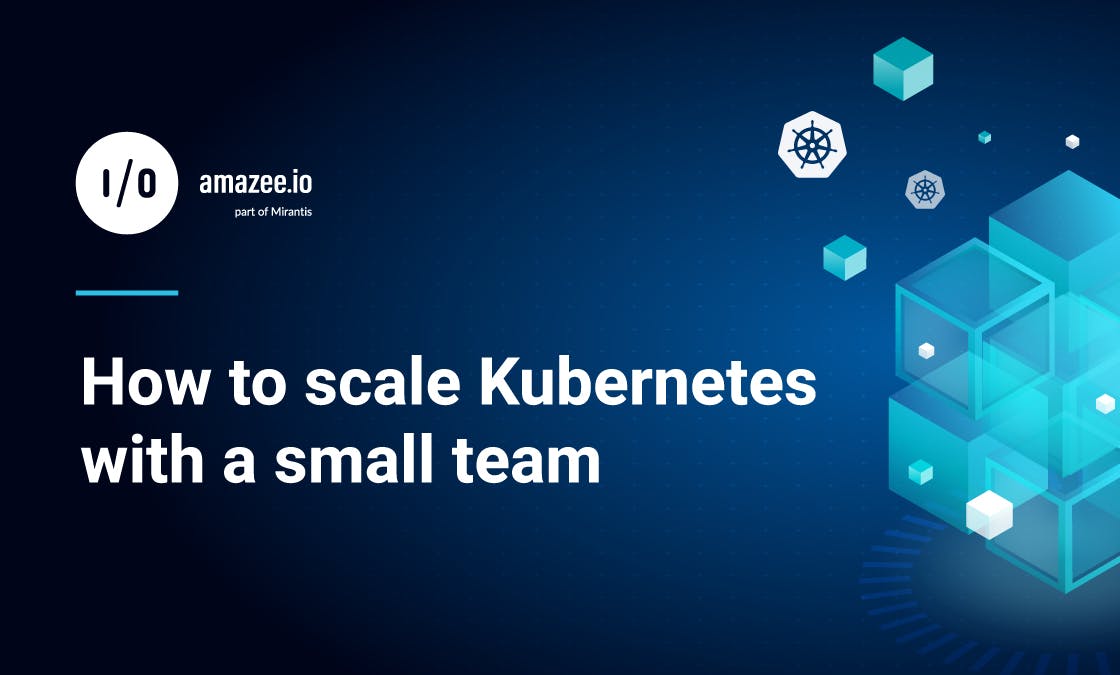Sophia Harris
|
Jan 17, 2023
|4 min read
Search Topic

If you want to deliver applications and sites using Kubernetes, you’re not alone: Kubernetes adoption was one of the hottest-growing tech trends of 2022, and for good reason: By allowing teams to deploy containerized apps at scale, Kubernetes offers flexibility and scalability to teams that would have otherwise been impossible.
Containers are a must for application delivery and websites. You can deliver microservices easily. You can work in a multicloud environment. You can automate and scale easily. In a nutshell, modern applications depend on Kubernetes, and cloud native application development isn’t really possible without it. Kubernetes is a critical puzzle piece to “future-proofing” your application delivery.
One main reason: It’s really hard to learn. It’s really hard to manage. And it’s really time-consuming to run.
In other words, most small teams don’t feel like they have the bandwidth to take on Kubernetes right now - or ever - because they’re already doing the work of multiple people. With tech layoffs sweeping the nation, small teams are getting even smaller - and most leaders certainly aren’t thinking of hiring an additional employee just to manage Kubernetes.
In the minds of most leaders, Kubernetes is just part of what developers should be doing - so it all gets put on developers to deal with, despite the fact the Kubernetes tasks are more infrastructure-and-operations, which simply isn’t what developers signed up for. And what’s worse is that developers who are forced to shoulder the burden of Kubernetes are often LESS productive overall and can’t provide as much value to their organization.
Why?
Simple math: there are only so many hours in a day. If developers are spending their time managing Kubernetes, then they aren’t developing applications or driving business value.
Many developers who are forced to do both “Dev” and “Ops” feel overworked, overburdened, and burned out. Developer burnout is a longstanding issue that’s worsened since the pandemic, with no signs of slowing down. This isn’t a good thing for the tech community and industry, as unhappy developers who are quitting, leaving jobs, or burning out will simply lead to less technological advancement in general.
So back to the issue of Kubernetes: You want to use it to develop applications the right way, but your developers can’t handle it and you don’t want to add headcount. Maybe you’re a startup, and you don’t think you have the budget to take on the time investment to learn Kubernetes.
Is there another solution?
Yes, in the form of platform engineering.
Instead of hiring new people when you want to add talent, we suggest considering strategic platforms and tooling to help support your developers. This solution is often much more cost-effective than hiring new people, and it infuses your team with the necessary skills and expertise to build, run, and manage Kubernetes clusters with ease.
With platform engineering, you can access the exact skills you need (and expertise you desire) at the fraction of a cost of a new hire. It’s a great way to “layer” DevOps knowledge and expertise needed to expand container and Kubernetes deployments.
These deployments can be very challenging to scale with common roadblocks like managing upgrades, auditing and remediating security issues, and maintaining CI/CD pipelines. Even with a dedicated team member handling it, you might be functioning more slowly than you’d like. Kubernetes can be slow to work with.
Securing your clusters is hard. Keeping track of all the monitoring and alerts can steal hours from your day. And worst of all, these issues steal focus from your developers. Platform engineering, or a PaaS like Lagoon, gives you what you need so you can get that focus back.
If you’re one of those companies (or developers, or leaders) who see DevOps or Kubernetes as a headache, you’re not alone: There's a growing trend in tech to simply upskill teams with these abilities, instead of trying to build it all from scratch. It’s better for your business. It’s better for your applications. It’s better for your security.
And most importantly, it’s better for your developers. The best thing you can do for your developers, in this economic climate of uncertainty, is to provide them with the tooling they developers *actually need* so they can get things done, enjoy their jobs again, and leave at 5 p.m. every day. Or maybe even 4:30 p.m.
Even if your team needs to grow smaller this year, that doesn’t mean you have to give up on Kubernetes. In fact, using a PaaS to run Kubernetes can set you ahead of your competitors by allowing you to get to market faster, backed by our expert team of application delivery specialists.
To learn more about how amazee.io can help your developers work more productively, contact us for a conversation.

